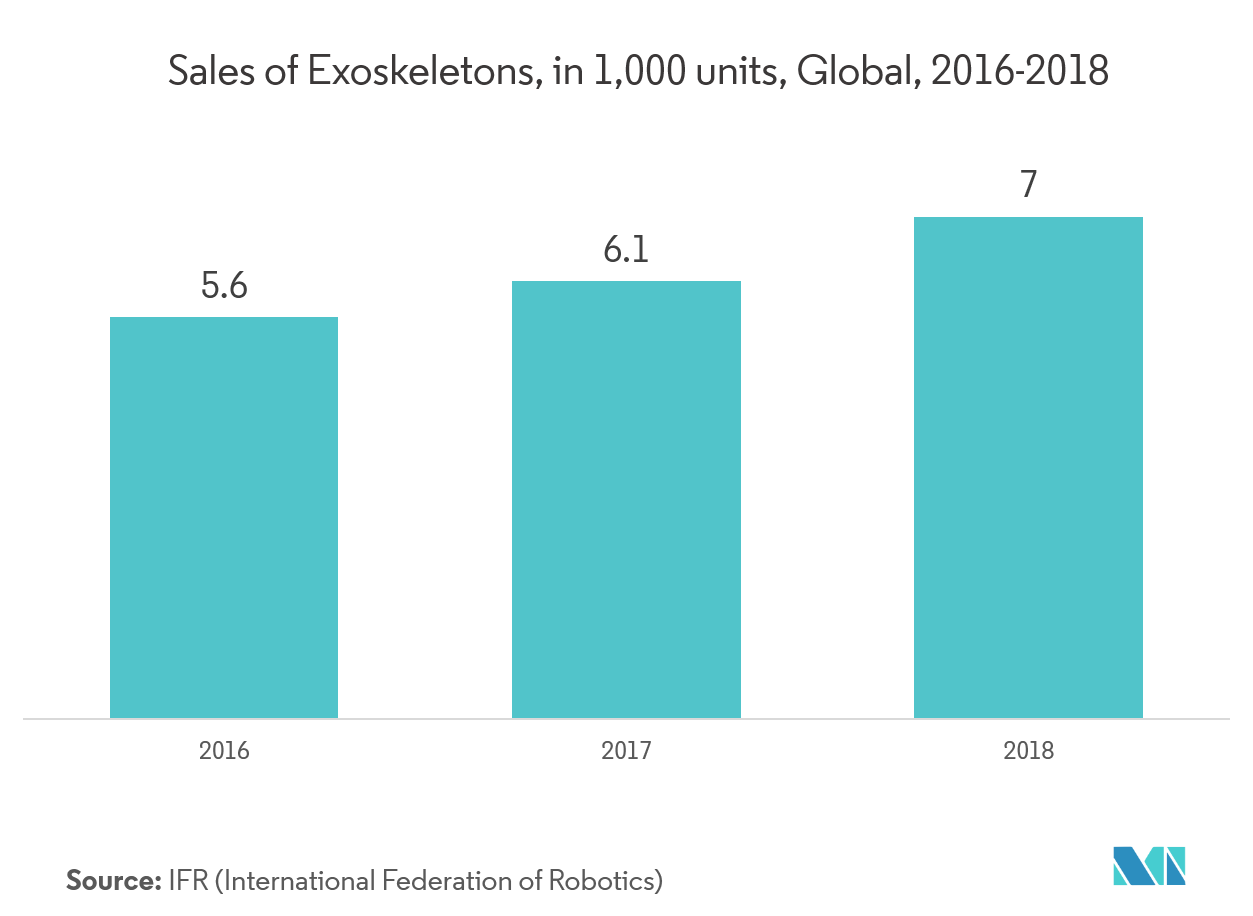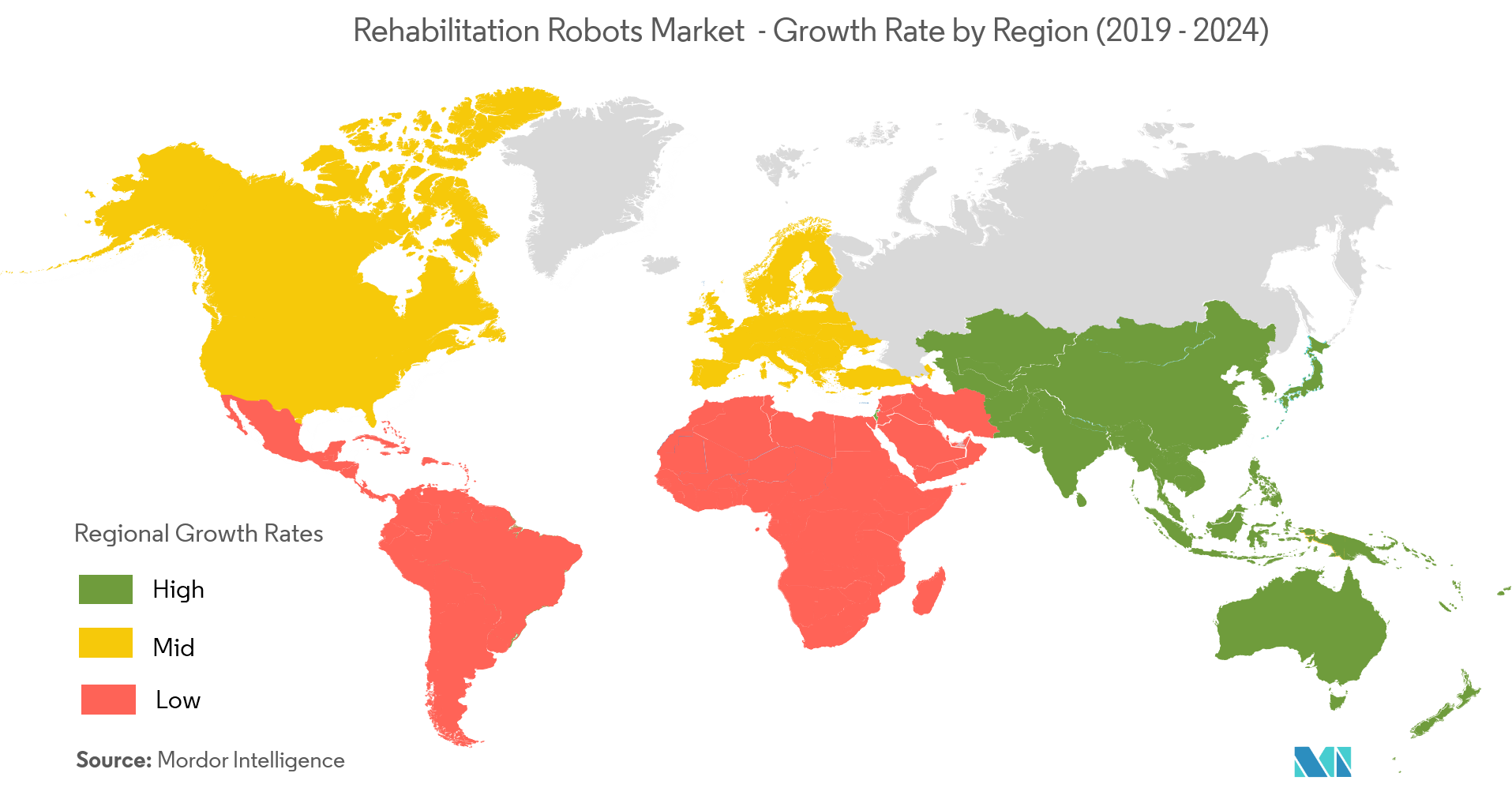Market Trends of Rehabilitation Robots Industry
This section covers the major market trends shaping the Rehabilitation Robots Market according to our research experts:
Exoskeleton Robots are Expected to Hold the Major Share
- Exoskeletons are designed to accelerate human strength and other abilities for medical purposes. An increasing number of patients with body movements disorders such as Parkinson’s disease, strokes, etc. are the prime factors accelerating the exoskeleton demand as these diseases limit voluntary body movements and create problems in daily routine activities.
- Robotic exoskeletons are emerging as a rehabilitation tool to improve various health-related consequences after spinal cord injury. For instance, ReWalk is the first exoskeleton that recieved FDA clearance for rehabilitation use in the United States. This robotic exoskeleton enables individuals with spinal cord injury to stand upright, walk, turn, and climb.
- Moreover, with the ongoing technological advancements to ensure therapists have access to better tools to deliver superior patient care are anticipated to drive the demand of the market. For instance, in 2019, Ekso Bionics launched EksoNR, a robotic exoskeleton for neurorehabilitation purposes. EksoNR empowers patients recovering from a stroke or other conditions to walk again with a natural gait. It is equipped with EksoView, a touchscreen controller that lets therapists adapt assistance to challenge patients by using real-time feedback and perform outcome measures during use.

Asia-Pacific is Expected to Experience Rapid Growth
- The aging societies of the Asia-Pacific, such as Japan and China, are driving growth in the medical technology sector, thus, creating a huge market for rehabilitation robots in the region. According to the Ministry of Internal Affairs and Communications (Japan), in 2017, around 35.2 million inhabitants were aged 65 or older. This number was projected to grow to 36.2 million in 2020. This is encouraging companies to invest in products for the elderly in the region.
- Stroke is one of the leading causes of adult disabilities in China. This, in turn, has resulted in a rising awareness concerning robot-assisted treatments, driving investments in this technology. In 2018, Avicrobot (a subsidiary of the Aviation Industry Corporation of China) developed a lower-limb rehabilitative robot. The company also collaborated with Xijing Hospital (China) to develop the robot. They cooperatively launched a rehabilitative robot research center to provide data support for such robots.
- Similarly, other countries in the region are also adopting robotic devices to provide better treatment for the patients. For instance, in 2018, New Life Rehab Hospital (India) adopted robotic rehabilitation for Neuro, Ortho and Geriatric patients. They are using robotic devices that are attached to the patient to help them move their limbs in a natural manner.


